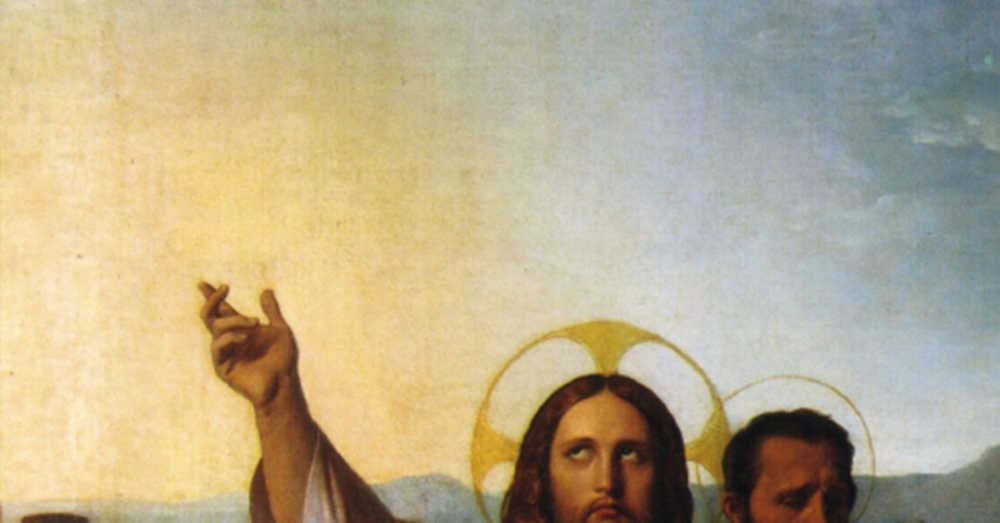We run our website the way we wished the whole internet worked: we provide high quality original content with no ads. We are funded solely by your direct support. Please consider supporting this project.

What Does a Perfect God Look Like?
The “classical view of God” refers to the view of God that has dominated Christian theology since the earliest Church fathers. According to this theology, God is completely “immutable.” This means that God’s being and experience never changes in any respect. God is therefore pure actuality (actus purus), having no potentiality whatsoever, for potentiality is a power to change which, as I just said, is ruled out in classical theology.
God is therefore also timeless (sequence-less), for “before” and “after” signifies some sort of change which, again, God is incapable of. Finally, God is “impassible” in classical theology, meaning that God is “above” experiencing emotion. To experience emotion God would have to be affected by something outside of himself, but this is impossible if God has no potentiality for change. Ancient philosophers and classical theologians thought all of these things were implied in the belief that God is “perfect.”
This concept of perfection comes to full fruition in a Greek philosopher named Parmenides, but it gained its most influential advocate in Plato who followed on Parmenides’ heels. In the Republic Plato argues that the gods must be unchanging, for all change can only be for the better or for the worse, and what is perfect cannot be improved or diminished. So, what is perfect must be completely unchanging. The argument is repeated ad nauseum by later Greco-Roman philosophers and then repeated by many early church theologians.
Think about this argument for a moment. Imagine a person walking around in a very upbeat mood who then encounters a friend who is despairing over the recent death of her child. Do you think the grief of the friend would alter the mood of this person? Wouldn’t it be grotesque if this person remained “immutable” in their upbeat demeanor while interacting with her grieving friend? Isn’t it the case that the more perfect this person was, the more deeply they’d be affected by their grieving friend? If they were in fact a perfect person, they wouldn’t be improved by this encounter, and they certainly wouldn’t be diminished by it. But they would be changed by it – precisely because they’re perfect.
This is the fatal flaw in Plato’s argument, and the fatal flaw in classical theology. The eternally-the-same and affected-by-nothing conception of perfection is completely non-relational and impersonal. It could perhaps be applied to timeless principles, but not to a personal being. Yet, from the earliest times Christian theologians applied this line of reasoning to the God of the Bible.
If we instead think of perfection in personal terms while acknowledging that God is perfect, the last thing we’d conclude is that God is completely unchanging, devoid of potentiality, sequence-less, or devoid of emotion. Instead, if we think of perfection in personal terms, the picture of God we get is one in which he is deeply affected by his relationships with those he creates. Of course, God’s character and nature is eternally-the-same, but his experience of his creation would be perpetually changing as he relates to perpetually changing people in a perpetually changing world.
Is this not exactly the picture of God we get in the Bible? Where in the Bible is there any hint that God’s experience of the world is unchanging and non-sequential? The God of the Bible is continually acting and responding. He plans, and then alters plans in response to new situations. He rejoices, grieves, gets angry, experiences disappointment, etc. While his sense of time is radically different form ours – as you’d expect from a being who has always existed – he nevertheless relates to humans in sequence (how else can one being relate to another?).
Most important, out of unfathomable love, the God of the Bible became a human being. Talk about God having the capacity to change and to be deeply affected by another! To me, one of the most shocking – and disappointing – mysteries of history is how bright Christians, who were taught to look to Jesus to know what God is like (e.g. Jn. 14:7-9), ended up asserting that God is immutable, devoid of potential, non-sequential, and impassible. I believe it’s time to lay this misconstrued Greek concept of perfection to rest.
Category: General
Tags: Attributes of God, Classical Theism, God, Jesus, Open Theism
Topics: Attributes and Character
Related Reading

When God Endorsed Polygamy
We often find God acting as if he supports things we know, by other means, that he does not. For example, though his ideal was monogamy, it’s clear in the biblical narrative that, once God decided to permit men to acquire multiple wives and concubines, he was not above bearing the sin of his people…

Christmas is Subversive…
…at least the first Christmas was. When Jesus came it was about the birth of a subversive ruler who brought a subversive kingdom. He is a king that came to introduce a reign that would overthrow the world. Click here for a brief reflection by Greg on Subversive Christmas, brought to you by Nomad.

Redefining Transcendence
God is transcendent, which basically means that God is “other” than creation. The problem is that classical thinking about God’s “otherness” has been limited to what reason can discern about God. As a result, all that can be said about his transcendence is what God is not. We are thus unable to acquire a positive…

How can you believe Matthew’s report about the Jewish cover up of the resurrection?
Question: In Matthew it’s reported that Jewish authorities tried to cover up the resurrection of Jesus by saying the disciples stole the body while the guards were sleeping. I don’t buy it. How would Matthew know about this story, since it was a secret conversation the authorities had with the guards? And how could they…

What Makes the Good News So Good
While God was revealed in various ways and to various degrees through the law and the prophets of the Old Testament, in Jesus we finally have the one who is “the exact representation of God’s being” or essence (hypostasis, Heb. 1:1-13). This is the heart of the Good News that reverberates throughout the New Testament.…

Lord Willing? Part 3
In this final segment of Greg’s discussion with Jessica Kelley about her book Lord Willing?, Jessica talks about how to respond to someone who is grieving or in crisis. You can find part 1 here and part 2 here. We’re so grateful that Jessica took the time to share her story with us. We know…
